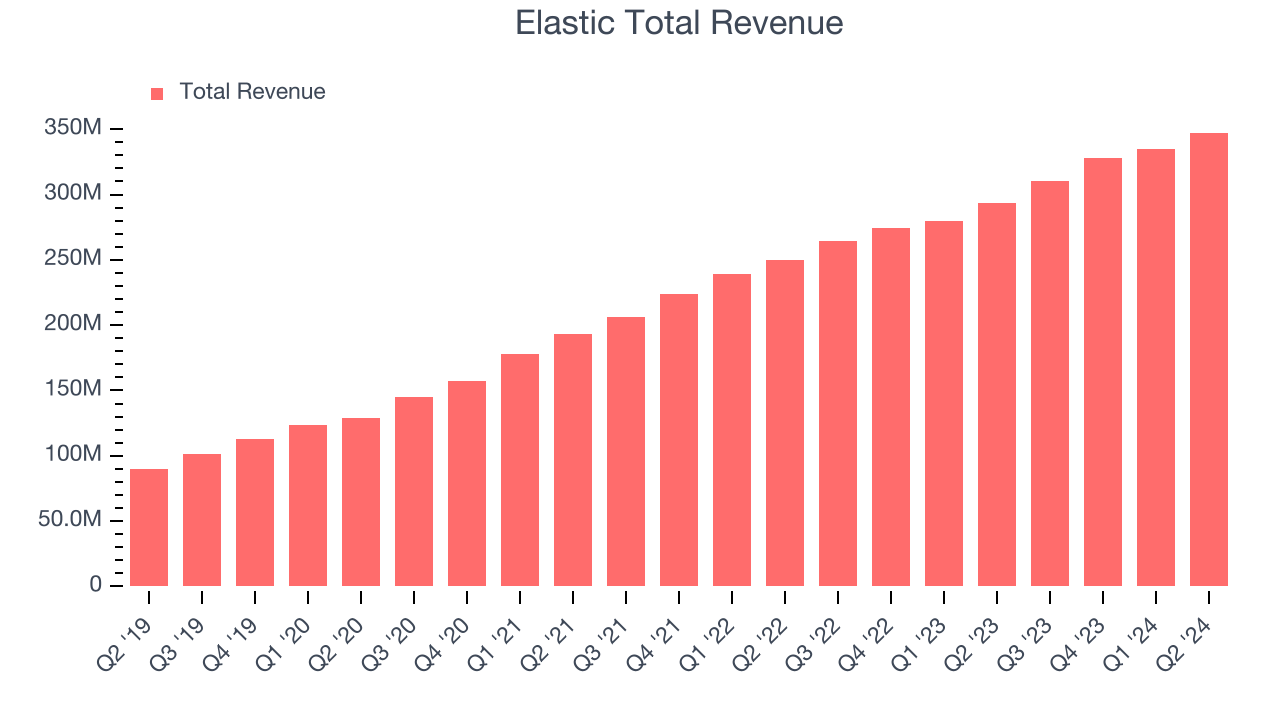
Search software company Elastic (NYSE: ESTC) will be reporting results tomorrow after the bell. Here’s what investors should know.
Elastic beat analysts’ revenue expectations by 0.8% last quarter, reporting revenues of $347.4 million, up 18.3% year on year. It was a mixed quarter for the company, with revenue guidance for next quarter missing analysts’ expectations significantly. It added 40 enterprise customers paying more than $100,000 annually to reach a total of 1,370.
Is Elastic a buy or sell going into earnings? Read our full analysis here, it’s free.
This quarter, analysts are expecting Elastic’s revenue to grow 14.1% year on year to $354.3 million, slowing from the 17.5% increase it recorded in the same quarter last year. Adjusted earnings are expected to come in at $0.38 per share.

Analysts covering the company have generally reconfirmed their estimates over the last 30 days, suggesting they anticipate the business to stay the course heading into earnings. Elastic has a history of exceeding Wall Street’s expectations, beating revenue estimates every single time over the past two years by 1.5% on average.
Looking at Elastic’s peers in the data and analytics software segment, some have already reported their Q3 results, giving us a hint as to what we can expect. Confluent delivered year-on-year revenue growth of 25%, beating analysts’ expectations by 2.1%, and Teradata reported flat revenue, topping estimates by 5.3%. Confluent traded up 13.3% following the results while Teradata was down 14.7%.
Read our full analysis of Confluent’s results here and Teradata’s results here.
There has been positive sentiment among investors in the data and analytics software segment, with share prices up 11.8% on average over the last month. Elastic is up 11.1% during the same time and is heading into earnings with an average analyst price target of $100.96 (compared to the current share price of $88.27).
Unless you’ve been living under a rock, it should be obvious by now that generative AI is going to have a huge impact on how large corporations do business. While Nvidia and AMD are trading close to all-time highs, we prefer a lesser-known (but still profitable) semiconductor stock benefitting from the rise of AI. Click here to access our free report on our favorite semiconductor growth story.





